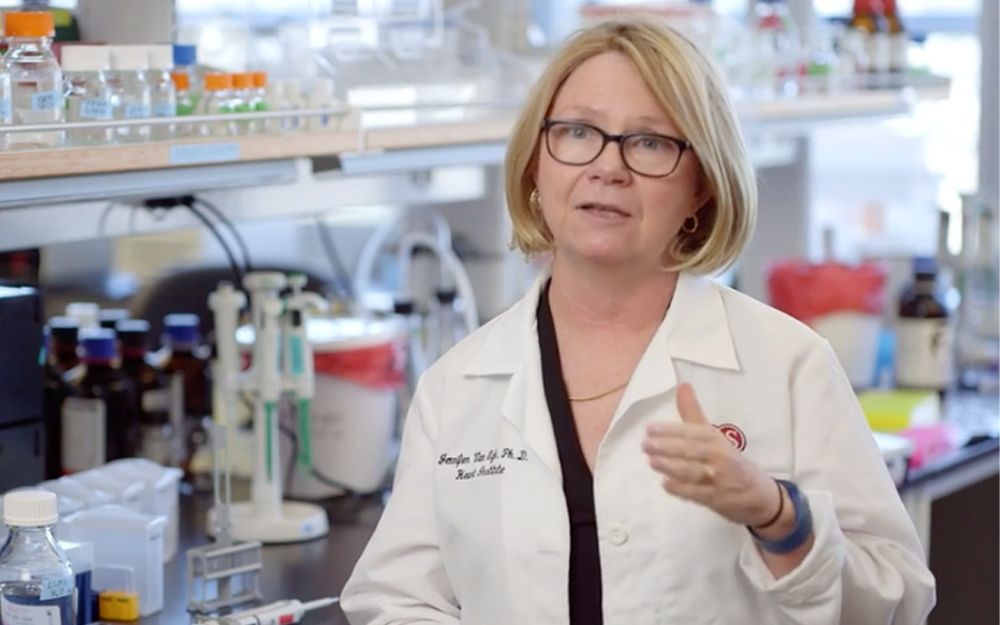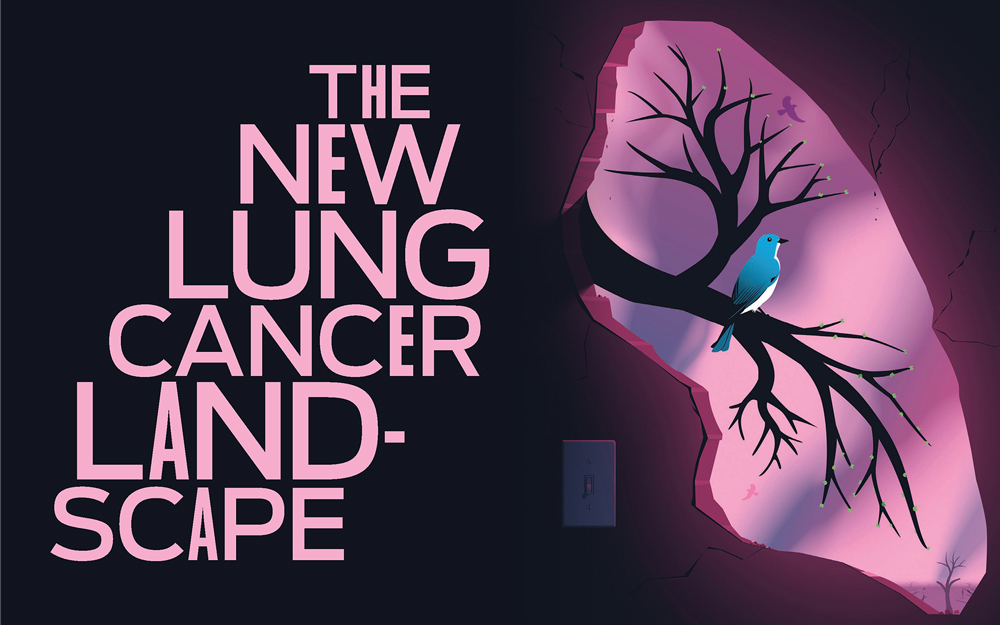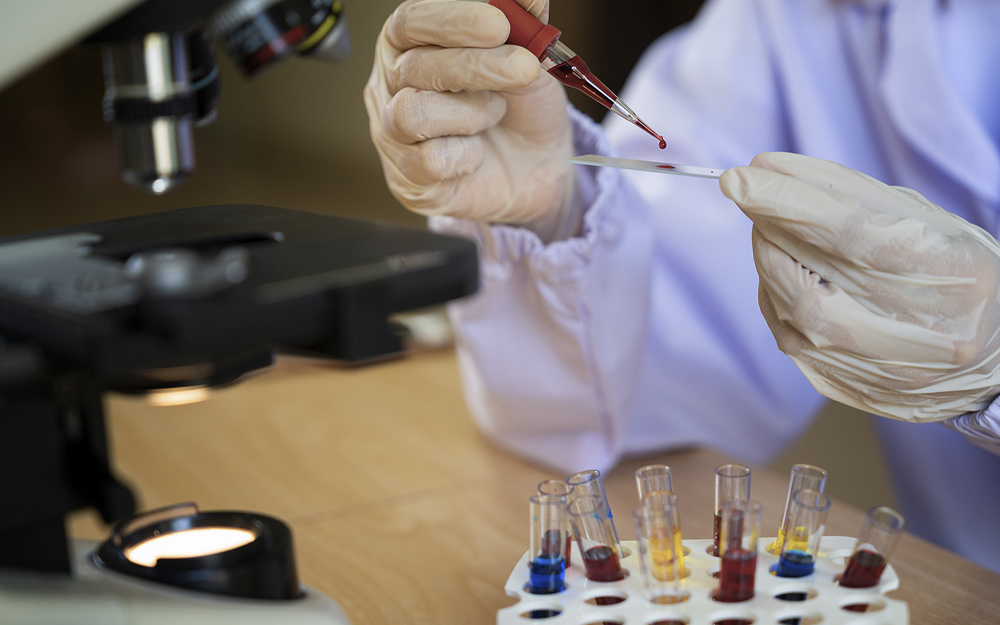10 Cancer-Fighting 'Aha' Moments
Date
February 18, 2020
Credits

Date
February 18, 2020
Credits
Medical providers featured in this article
In Brief
{{cta-block}}
"Aha" moments in cancer research are like earthquakes—the Big One could happen any time. But ideas and revelations on the lower end of the seismic scale can also have a major impact. Jane Figueiredo, PhD, heads the nation’s largest study on prevention and treatment of colorectal cancer in Latino people. Here, she shares revelations—some small, some earth-shattering—that drive her commitment to fighting colorectal cancer and cancer disparities in underserved populations.
{{column-start}}

Jane Figueiredo, PhD
Investigator
{{column-end}}
{{column-start}}
- Director of Community and Population Health Research, Cedars-Sinai Samuel Oschin Comprehensive Cancer Institute
- Associate Director, Cedars-Sinai Center for Integrated Research on Cancer and Lifestyle
- Faculty Member, Cedars-Sinai
{{column-end}}
1. Latinos are dangerously underrepresented in research investigating colorectal cancer.
It’s astonishing that we have so little data about the disease in the largest ethnic minority group in the United States. Cancer is the leading cause of death among U.S. Latinos, and colorectal cancer is the second most common and fatal cancer in this population. Latinos tend to get colorectal cancer at a younger age and have more advanced disease when they are diagnosed. It’s particularly alarming that they’re experiencing a slower decline in mortality rates compared to non-Hispanic whites. Yet most of the research on this cancer focuses on non-Hispanic whites. Fortunately, this is beginning to change.
2. Colorectal cancer is highly preventable
We have incredible opportunities to intervene—with screening tools such as the colonoscopy—and improve outcomes.
Physicians and investigators have a responsibility to develop culturally sensitive education and prevention strategies that enable underserved populations to better protect their health.
3. Latinos have a lower rate of colorectal cancer screening than non-Hispanic whites.
What keeps Latinos from getting screened? Is this why they tend to be sicker when they get diagnosed? Or are they at higher risk genetically for more aggressive cancer? These are very important questions that we’re hoping to answer through the Hispanic Colorectal Cancer Study—the largest of its kind, with nearly 2,000 patients.
4. We should not look at the U.S. Latino population as a single entity.
Most people still group Latinos together, but we can’t fully understand the cancer care needs of this underserved group without seeing how diverse it is.
Research must encompass different cultural and socioeconomic perspectives as well as the genetics of colorectal cancer among Latino subgroups, with varying degrees of indigenous American, European and African ancestry.
5. Underlying causes are complicated.
Sorting this out to reduce cancer disparities requires scientists to adopt a multilevel framework for assessing disease risk—and do a lot of teamwork. As researchers, we need to engage the community, including policymakers, faith-based leaders and others in examining everything from the environment in which people live to their lifestyle choices, socioeconomic conditions and genetics.
6. Cultural influences count
As Latino populations assimilate into the U.S. lifestyle, they may acquire additional risk factors related to diet and exercise that make them more susceptible to colorectal cancer.
Across all major cancers, Latinos born in the U.S. have higher incidence and lower survival rates than those who are foreign-born.
7. Progress in cancer risk research may have unintended consequences.
As we develop genetic models that can tell individuals whether they are at low, moderate or high risk for colorectal cancer, we also need to study their response to this information. For example, we don’t want those at low risk to stop taking preventive steps.
We also need to understand risk differences across ethnic and racial populations and develop culturally tailored education. Everyone should make healthy choices—regardless of their level of risk.
8. Genetics and diet can mean double trouble.
Burgers, hot dogs and cured meats shouldn’t be staples in anyone’s diet. But we now know that avoiding these foods is even more critical for the 1 in 3 people who have inherited a certain genetic variant that, combined with red or processed meat, substantially increases the risk of colorectal cancer.
The good news: What we are learning about how genes and diet interact increases our ability to prevent cancer.
9. Vitamin supplements may do more harm than good.
Complementary health practices are common among Latinos who have survived colorectal cancer. One study showed that 35% use herbal products and dietary supplements, but most don’t talk about this with their doctor.
It’s important to share this information because these are biologically active agents that can interact with medication and seriously increase health risks.
10. Colorectal cancer and heart disease share risk factors such as obesity, poor diet and lack of exercise.
In collaboration with the Cedars-Sinai Smidt Heart Institute and the Biomedical Imaging Research Institute, we’re beginning to study the risk of cardiovascular problems in colorectal cancer survivors so we can help prevent another potentially life-threatening health crisis.





